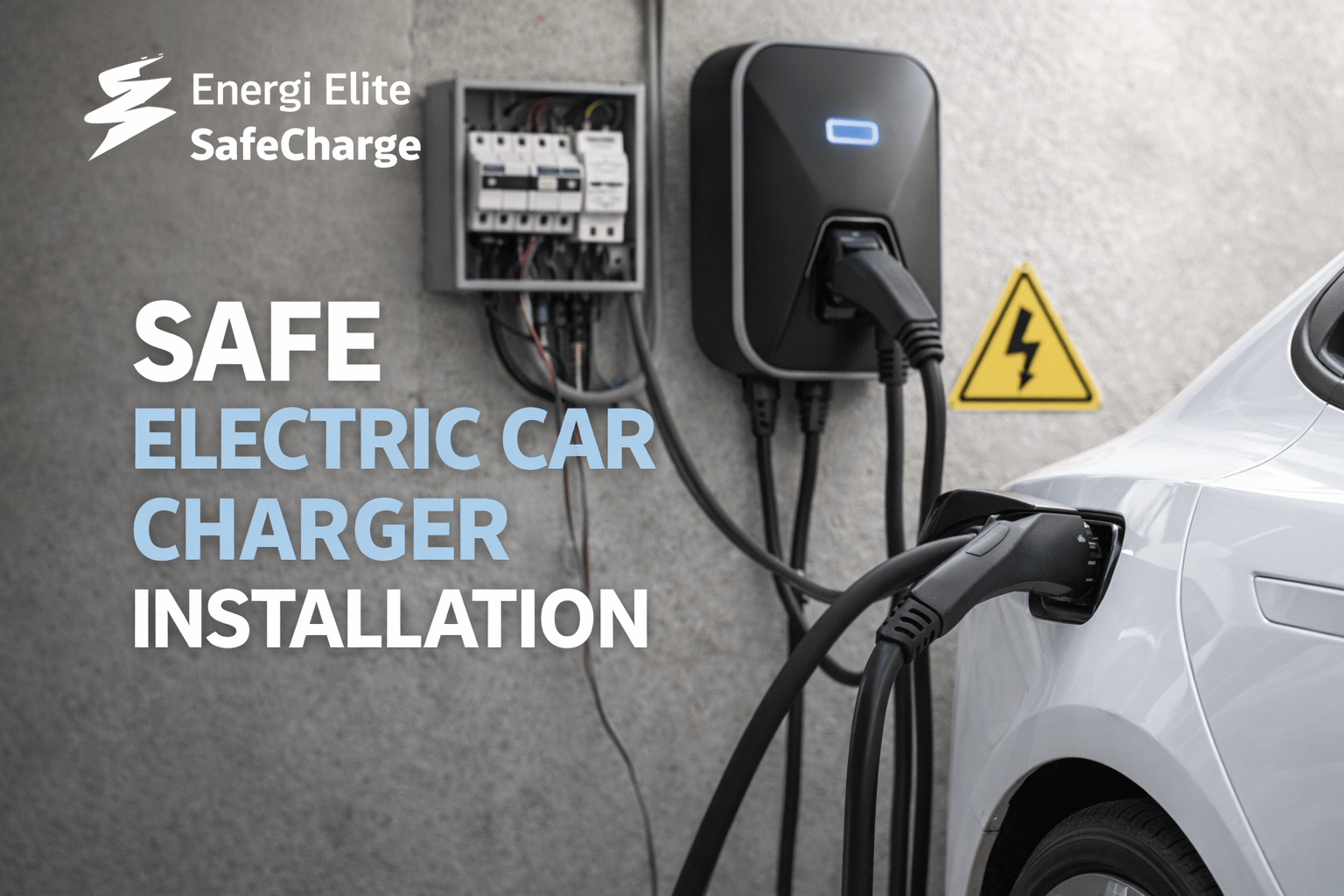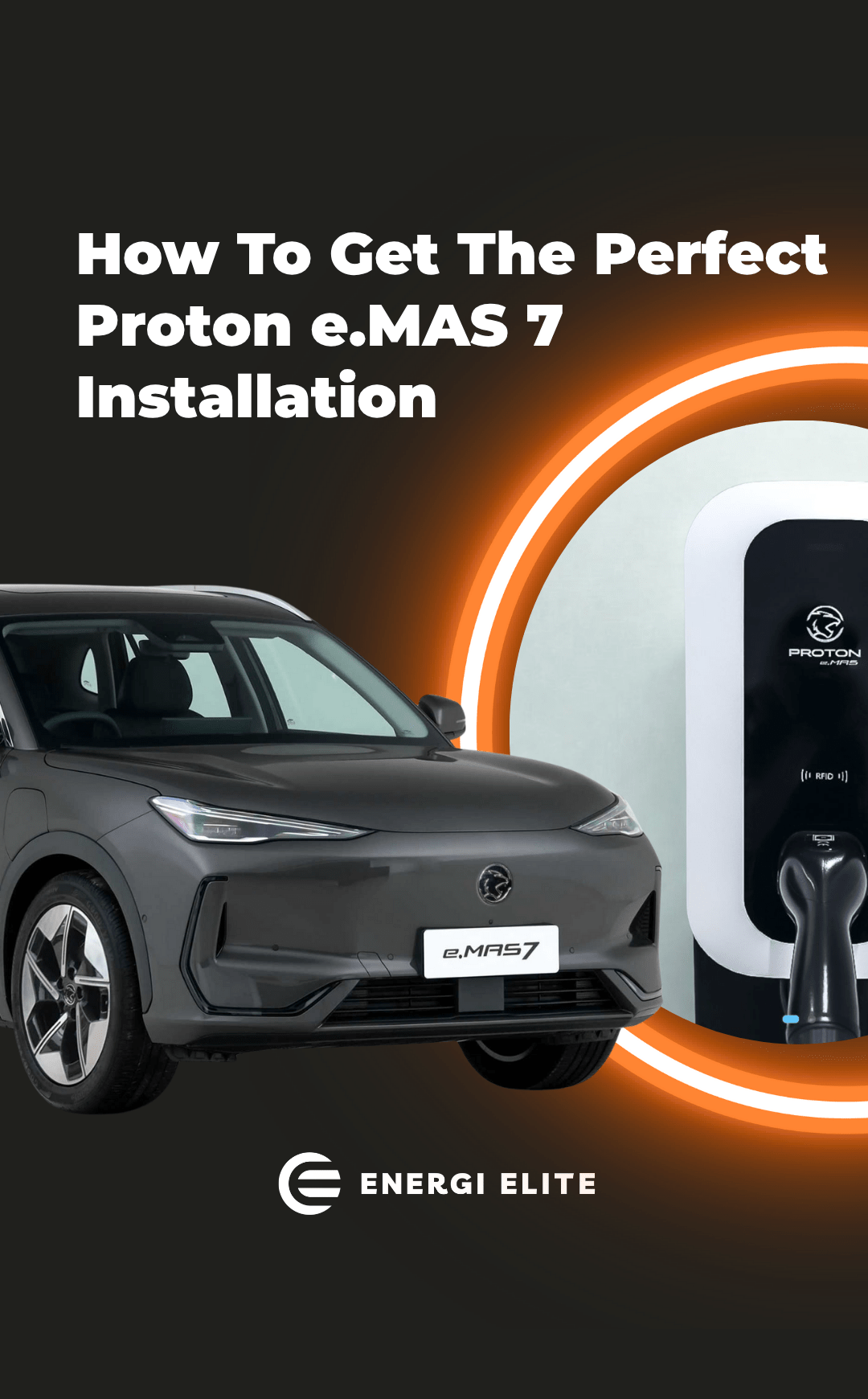As more people switch to electric vehicles (EVs), it’s important to understand the different types of chargers available and how to charge your car at home. Many EVs come with a portable charger, also known as a “granny charger,” which can take up to 20 hours to fully charge a 30kWh car from 0%. This can be inconvenient for daily commutes and other long-distance travel.
To avoid this issue, it’s recommended for EV owners to have a Type 2 (fast charger) installed at home. A Type 2, 7kW charger can fully charge a 30kWh car in just 4.5 hours, making it much more convenient for daily use.
Additionally, it’s safer to use a wall box charger for your home. In this article, we’ll explore the different types of EV chargers available, the cost of installation, and why it’s important to have a dedicated charger for your EV at home.
Key Takeaways
- Installing a Type 2, 7kW charger at home can fully charge a 30kWh car in just 4.5 hours.
- A dedicated charger is recommended for EV owners to avoid long charging times and inconvenience.
- Wall box chargers are safer to use for home charging.
Is it Possible to Self-Install an EV Charger Purchased Online?
EV chargers can be purchased online, but it is not recommended to self-install them unless you are a certified electrician or engineer. The electricity input required for an EV charger is much higher than for any home equipment, especially if you are buying a Type 2 wall box.
It is highly recommended to have a professional installer to install your EV wall box. Attempting to do it yourself can be dangerous and can lead to faulty installation, which can be hazardous. It is best to leave the installation to a professional to ensure safety and proper functionality.
Cost of EV Charger Installation in Malaysia
| EV Charger Type | Cost Range |
|---|---|
| 7kW | RM3,000 – RM5,900 |
| 22kW | RM5,000 – RM7,900 |
Installing an electric vehicle (EV) charger in Malaysia can be a cost-effective investment in the long run. The cost of EV charger installation in Malaysia varies depending on the type and brand of the charger. The cost for a 7kW EV charger typically ranges from RM3,000 – RM5,900, while a 22kW model costs RM5,000 – RM7,900.
When it comes to installation services, prices can also vary depending on the cable length and installation method required. The installation price starts from RM1,200 – RM1,800. Before installation, a test will be conducted on the distribution box and electrical components to ensure safety.
It is important to be cautious of low-cost installation services, as the components used may be of low quality and compromise safety. The circuit breakers used in installation services should be Type Test Certified and come with IEC 60898 Standard.
To help make the installation more affordable, tax credits may be available. It is recommended to check with the local authorities to determine eligibility for tax credits.
In summary, the cost of EV charger installation in Malaysia can range from RM3,000 – RM7,900 depending on the type and brand of the charger. Installation services start from RM1,200 – RM1,800, with safety precautions taken before installation.
It is important to ensure that the circuit breakers used are Type Test Certified and come with IEC 60898 Standard to ensure safety. Tax credits may also be available to help make the installation more affordable.
Why Can’t I Just Plug In The EV Charger To a Wall Socket in Malaysian homes?
EV chargers require a high amperage over an extended period of time to charge the battery. A standard home wall socket in Malaysia typically supports a maximum of 13 Amps and is wired to handle only up to 13 Amps. A 1.7 kW granny charger requires 8 Amps of current, which means it is theoretically possible to charge an EV using a wall socket as long as the socket is not shared or looped.
However, it is not advisable to use a granny charger for an extended period due to the high risk of hazards. In Singapore, the use of a granny charger on a 3-pin 13A socket is banned.
On the other hand, a 7 kW Level 2 fast charger requires an input of 32 Amps current, which is not supported by a home socket. Moreover, the existing wiring cables within the wall are not compatible with the required size, leading to overheating, melting, and eventually, a fire hazard.
To install a home wall box charger, a new set of breakers is required to provide the right safety precautions. Additionally, the cable that connects to the charger wall box is thicker to support the 32 Amps current. Therefore, a certified-professional electrician or engineer is required for installation.
It is essential to note that charging an EV using a standard wall socket is significantly slower than using a Level 2 charger. Level 1 charging using a standard wall socket provides a charging speed of around 3-5 miles of range per hour, while Level 2 charging using a dedicated charging station provides a charging speed of 10-60 miles of range per hour, depending on the charging station’s power output.
Overall, it is not recommended to charge an EV using a standard wall socket due to the low charging speed and high risk of hazards. Instead, it is recommended to use a Level 2 charger or a dedicated charging station, which provides a faster charging speed and is safer.
Is it Needed To Install 3-Phase for an EV Charger?
Upgrading to 3-Phase wiring is only necessary if you plan to install a 22kW wall box charger. This is because 3-Phase wiring supplies your home with a higher voltage of 415V compared to the 230V provided by Single-Phase wiring. By converting to 3-Phase, you can support a 22kW charger with the same 32 Amp requirement.
Although 3-Phase wiring is commonly found in larger homes, warehouses, and offices, it is not necessary for most EV charging needs. Most EV owners opt for a home charging unit instead of using a 3-pin plug, which can take up to 17 hours to fully charge. A 7kW EV charger can cut down on that charging time by 11 hours.
It is important to note that in Malaysia, there are only a few EV models that support a 22kW charger. Therefore, upgrading to 3-Phase wiring may not be necessary for most EV owners.
Is It Possible To Install a DC Charger at Home?
Safety Precautions to Take Installing an EV Home Charger
Installing an EV home charger can be a great convenience, but safety should always be a top priority. When it comes to installing a DC charger at home, it is important to note that it is not recommended due to safety concerns.
DC chargers require a 440-volt DC power supply to operate, which is not safe for most homes. Installing a DC charger in a home would require immense structural changes and lots of money. Most residential properties are incapable of accommodating these hefty power requirements.
Additionally, using a DC charger will deteriorate the battery’s lifespan of your EV. It is only recommended to use a DC charger once in a while, and not to fully charge your car with it.
Therefore, it is highly recommended to install an AC charger (wallbox) at home instead. AC chargers are cheaper and easier to install, and can be installed at home and in communal spaces like in apartment parking lots. They send AC power from the grid directly to your EV.
To ensure safety when installing an EV home charger, it is important to follow these precautions:
- Hire a licensed and experienced electrician to install the charger.
- Make sure the charger is compatible with your EV and meets safety standards.
- Install the charger in a well-ventilated area away from flammable materials.
- Use the correct circuit breaker and wiring to avoid overloading the electrical system.
- Regularly inspect and maintain the charger to ensure it is functioning properly.
By following these safety precautions, you can enjoy the convenience of charging your EV at home while ensuring the safety of your home and family.
Why Energi Elite EV Chargers are suitable for home?
Energi Elite offers AC Chargers with a power output of 11kw, making them ideal for home charging. These chargers are certified with CE and TUV certificates, ensuring top-quality and safety. Energi Elite also conducts quality tests on every charger and provides a 2-year warranty for customers who purchase and install their chargers.
Other reasons why Energi Elite EV Chargers are suitable for home include:
- Easy installation process
- Affordable pricing
- Compatibility with most electric vehicles
- Compact and sleek design
- User-friendly interface for easy operation
Overall, Energi Elite EV Home Chargers offer a reliable, safe, and convenient charging solution for electric vehicle owners at home.
Frequently Asked Questions
What is the average time it takes to charge an electric car at home?
The average time it takes to charge an electric car at home depends on various factors such as the charging speed of the charger, the battery size of the electric car, and the electricity supply of the home. A Level 1 charger that uses a standard 120-volt outlet can take up to 20 hours to fully charge an electric car. A Level 2 charger, which requires a 240-volt outlet, can fully charge an electric car in 4-8 hours.
Do I need to pay to charge my electric car at a charging station?
It depends on the charging station. Some charging stations are free to use, while others require payment. The cost of charging an electric car at a charging station may vary depending on the location and the type of charging station. Some charging stations charge per hour, while others charge per kilowatt-hour.
Can I charge my electric car from a 13 amp socket?
Yes, it is possible to charge an electric car from a 13 amp socket, but it is not recommended. Charging an electric car from a 13 amp socket can take a long time, and it may not provide enough power to fully charge the car. It is recommended to use a dedicated electric car charging point for faster and safer charging.
How much does it cost to charge an electric car per month in Kuala Lumpur?
The cost of charging an electric car per month in Kuala Lumpur depends on various factors such as the electricity tariff, the battery capacity of the electric car, and the charging frequency. According to Charge+, the average cost of charging an electric car in Malaysia is around RM 0.33 per kilowatt-hour.
Assuming an average daily commute of 50 km, the monthly charging cost for an electric car with a 40 kWh battery capacity would be around RM 53.
What are the best apps to find EV charging stations in Malaysia?
There are several apps available that can help find EV charging stations in Malaysia. Some of the popular apps include Charge+ and PlugShare. These apps provide information on the location, availability, and pricing of the charging stations.




